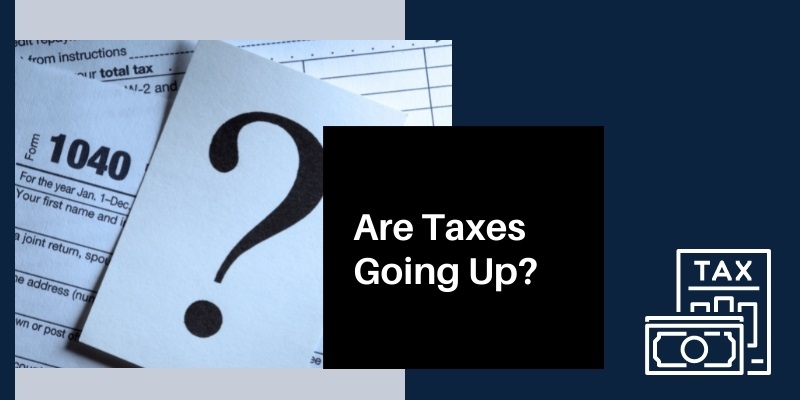
There is a lot of uncertainty about tax increases proposed by President Biden. In this article, Brandon Baiamonte discusses some of the proposals and their likely effect on you from a tax planning perspective. He also covers several of the compromises we expect to see in Congress.
By Brandon Baiamonte, MS, CPA, CFE, CFM
Mission Wealth Director of Tax Strategy
Almost everyone wants to pay as little income taxes as possible. We get nervous when we hear about taxes going up. It can be frustrating and cause uncertainty. We recommend you work with your advisors to come up with a plan based on your specific financial needs and concerns.
Let’s discuss some of Biden’s tax proposals in turn and possible outcomes.
1. Capital Gains Tax Rate
The most talked about aspect of President Biden’s tax proposal is the capital gains tax increase from a maximum of 20 percent to 39.6 percent for those with income over $1 million. This almost doubling of the rate surprised many.
It is likely capital gains taxes will increase, but probably not to that extreme. However, an increase to 28 percent is quite possible. There has also been speculation the capital gains tax increase will be made retroactive to either the beginning of 2021, or to some point during the year. The more likely outcome is any increase would take place on January 1, 2022. It might make sense to sell appreciated assets in 2021 that you were planning on selling over the next year anyway. Please discuss this with your advisors, as there are other factors to consider.
2. Income Tax Rate
President Biden has also proposed increasing the highest marginal income tax rate from 37 percent to 39.6 percent. It is likely this increase will happen.
3. Estate Taxes
There are also several proposals related to estate taxes. The first one is the elimination of the step up in basis at death. Congress has attempted to eliminate this before, but failed. We will follow this proposal closely, as it would be a significant change and require some planning.
The second proposal is gain recognition at death on inherited assets. We believe this proposal is unlikely to become law.
The third possibility is a reduction of the estate exemption from $11.7 million to $5 million for an individual ($10 million for a married couple). This proposal could be made in lieu of eliminating the step up in basis described earlier. You should consider finding and storing in one place any purchase documents for your assets (such as stocks, real estate, artwork, etc.). This will make it easier later to determine your basis in those assets. Mission Wealth has a secure portal to help store electronic copies of your sensitive financial documents.
4. Other Potential Changes
There are a number of other proposals to be aware of.
A potential change relates to the net investment income tax (NIIT) of 3.8 percent being assessed on income of shareholders of S-Corporations or limited partners.
There has also been talk of repealing or decreasing the deferral benefits of like-kind exchanges.
On a positive note, we wouldn’t be surprised if the $10,000 itemized deduction limitation for taxes was increased.
It will probably be late in the year before any tax proposals become law. The key take-away is that taxes are likely going to increase, but not to the extent some feared. Your client advisor at Mission Wealth is available to help coordinate with your tax advisor and is a great resource to help plan for and implement any appropriate changes to your investments or financial plan based on the changing tax laws.
About the Author
Brandon Baiamonte serves as the Director of Tax Strategy at Mission Wealth. Earlier in his career, Brandon worked at Merrill Lynch as a financial advisor. This provided him with a life-long love of both the financial planning process and investing. Brandon also worked as an Internal Revenue Agent for almost 12 years, auditing hundreds of tax returns, from high net-worth individuals to businesses in a variety of different industries. Brandon spent the last six years working as both a CFO and controller for real estate development and private equity companies. Brandon earned his Bachelors of Business Administration in Accounting from Boise State University, as well as a Master of Science in Accounting from the University of Connecticut. Brandon is both a Certified Public Accountant (CPA), and a Certified Fraud Examiner (CFE).
How Mission Wealth Can Help
At Mission Wealth, we help you explore the most cost-effective solutions to help cover a number of possibilities. We have no proprietary products to sell and no quotas to fill. We simply offer independent, objective advice that serves your best interests. We realize that taxes may be one of your largest ongoing expenses. We will bring tax reduction strategies to you and coordinate with your CPA on implementation. We also manage your investment portfolio in a tax-efficient manner.
DISCLOSURES: For informational and discussion purposes. These concepts should be discussed with your tax, financial and legal representatives prior to implementation.
OUR TAX REVIEWS ARE INTENDED TO COMPLEMENT YOUR ACCOUNTANT’S WORK. IT SHOULD NOT BE USED AS A SUBSTITUTE TO TAX PLANNING AND/OR TAX PROJECTIONS FROM YOUR TAX PROFESSIONAL.
MISSION WEALTH IS A REGISTERED INVESTMENT ADVISOR.
00409787 06/21

